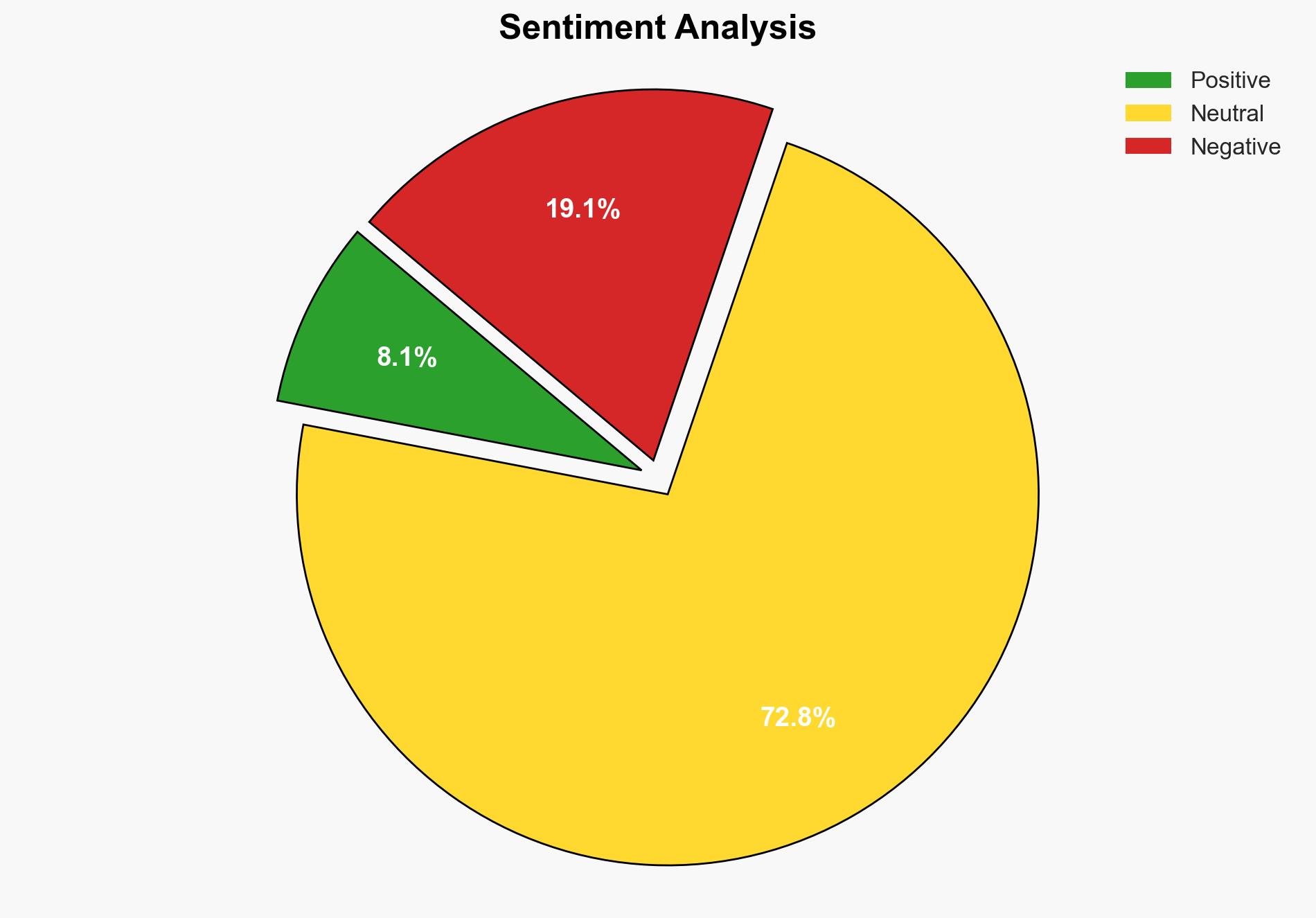US deports more than 200 alleged Venezuelan gang members to El Salvador – ABC News (AU)
Published on: 2025-03-17
Intelligence Report: US deports more than 200 alleged Venezuelan gang members to El Salvador – ABC News (AU)
1. BLUF (Bottom Line Up Front)
The United States has deported over 200 alleged members of the Venezuelan gang, Tren de Aragua, to El Salvador. This action was facilitated by invoking the Alien Enemy Act, allowing for expedited deportations. The deportees are being held in a high-security prison in El Salvador. The move has sparked legal challenges and international criticism, notably from the Venezuelan government and civil liberties organizations.
2. Detailed Analysis
The following structured analytic techniques have been applied for this analysis:
General Analysis
The deportation of alleged gang members is part of a broader immigration crackdown strategy. The use of the Alien Enemy Act, typically reserved for wartime, has raised legal and ethical concerns. The rapid deportation process bypassed traditional immigration courts, leading to a legal challenge by the American Civil Liberties Union. The situation is further complicated by the involvement of multiple governments and the potential for diplomatic tensions.
3. Implications and Strategic Risks
The deportation could strain US-Venezuelan relations, as the Venezuelan government has condemned the use of the Alien Enemy Act. There is also a risk of destabilization in El Salvador, where the influx of alleged gang members could exacerbate existing security challenges. The legal challenges in the US could set precedents affecting future immigration policies and enforcement.
4. Recommendations and Outlook
Recommendations:
- Engage in diplomatic dialogue with Venezuelan and Salvadoran governments to address concerns and mitigate tensions.
- Review and potentially revise the legal framework surrounding the use of the Alien Enemy Act to ensure compliance with international human rights standards.
- Enhance cooperation with regional partners to address transnational crime and improve security measures.
Outlook:
Best-case scenario: Diplomatic efforts lead to improved bilateral relations and collaborative security initiatives. Legal challenges are resolved without significant policy changes.
Worst-case scenario: Escalating tensions lead to diplomatic fallout and increased regional instability. Legal challenges result in significant policy reversals.
Most likely scenario: Ongoing legal proceedings and diplomatic negotiations lead to incremental policy adjustments and regional cooperation efforts.
5. Key Individuals and Entities
The report mentions significant individuals and organizations:
- Donald Trump
- Nayib Bukele
- Marco Rubio
- James Boasberg
- Lee Gelernt
- Nicolas Maduro
- Tren de Aragua
- American Civil Liberties Union




